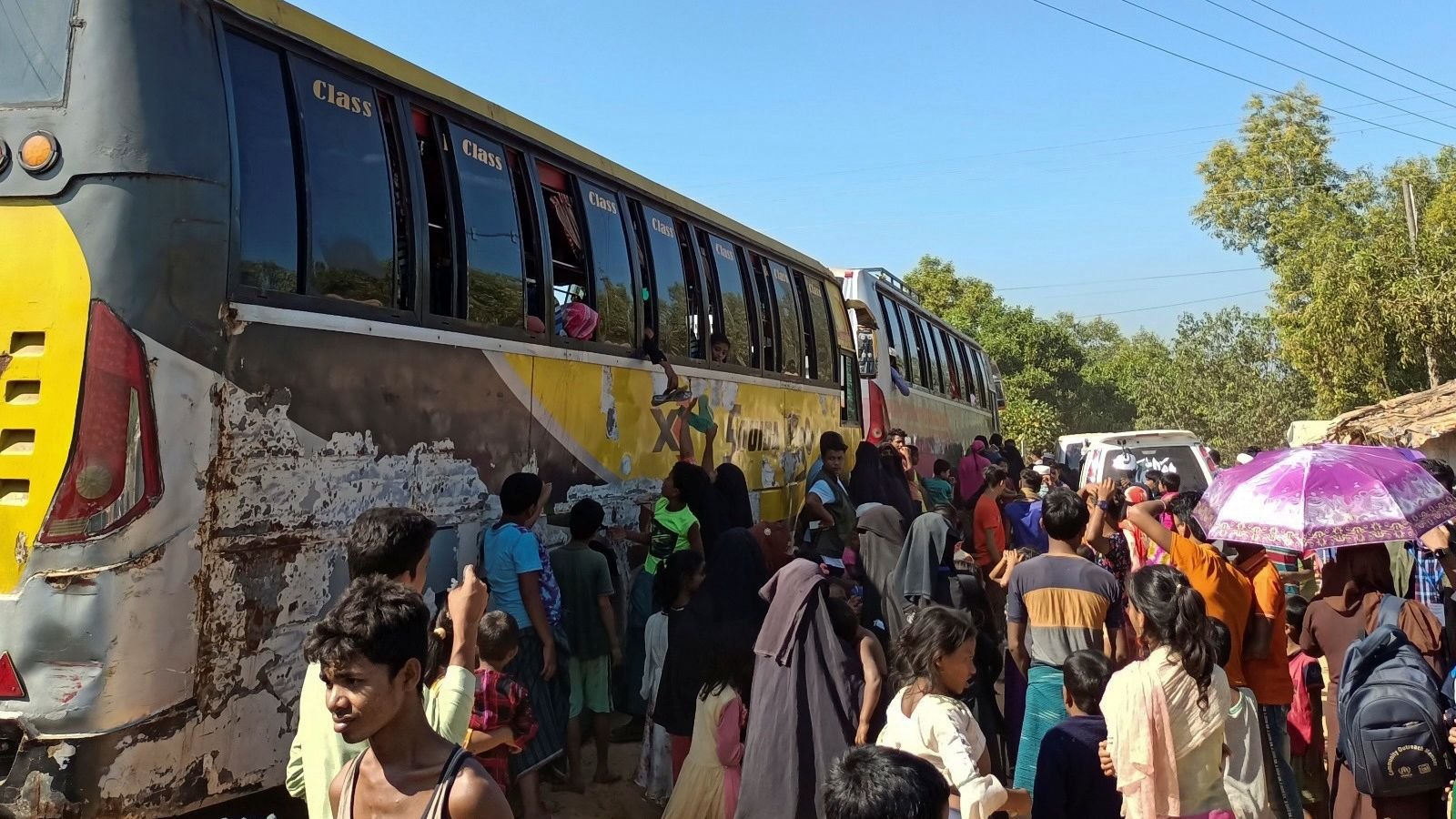
Bangladesh Navy has developed facilities at the island but United Nations voices safety concerns while human rights groups cry foul
Team clarion
NEW DELHI — Despite safety concerns and calls by human rights groups, Bangladesh on Friday sent more than 1,600 Rohingya refugees to an isolated island. A naval official said the Rohingyas were on board seven boats, with two more carrying supplies.
After about a three-hour trip they arrived at the island called Bhasan Char in the Bay of Bengal. Located 21 miles (34 kilometers) from the mainland, the island surfaced only 20 years ago and was never inhabited.
Bangladesh says it is only moving refugees who are willing to go and that this will ease chronic overcrowding in camps that are home to more than one million Rohingya, members of a Muslim minority who have fled neighbouring Myanmar.
But refugees and humanitarian workers say some of the Rohingya had been coerced into going to the island. The United Nations has voiced concern that refugees be allowed to make a “free and informed decision”about whether to relocate to Bhasan Char.
“My family didn’t want to go, they are taking them by forceif my family go there to the island they will die because of floods,” a woman told Al Jazeera.
Humanitarian and human rights groups have said the island is flood-prone and vulnerable to frequent cyclones, while the government has not allowed the United Nations to carry out a safety assessment.
An 18-year-old woman said her husband had put their names on the list thinking it was for food rations. He fled when they were told to go to Bhasan Char, she said, adding that she is also hiding in the camp.
They were among more than 730,000 Rohingya who fled Myanmar in 2017 following a military-led crackdown that the UN said was executed with genocidal intent.
Myanmar denies genocide and says its forces were targeting Rohingya rebels who attacked police posts.
Human Rights Watch said it had interviewed 12 families whose names were on the lists but had not volunteered to go, while Refugees International said the move was “nothing short of a dangerous mass detention of the Rohingya people in violation of international human rights obligations”.
Two aid workers, who spoke on condition of anonymity, said refugees had come under pressure from government officials who used threats and offers of cash and other enticements to persuade them to go to the island.
More than 300 refugees were brought to the island earlier this year after several months at sea in an attempt to flee Bangladesh. Rights groups say they are being held against their will and have complained of human rights violations.
Saleh Noman, a Bangladeshi journalist who travelled with the refugees, said by phone from the island that the refugees were given rice, eggs and chickens for lunch after their body temperatures were measured by health workers as a coronavirus precaution.
Bangladesh Navy has developed facilities at the island like flood protection embankments, houses, hospitals and mosques at a cost of more than$112 million. The facilities are built to accommodate 100,000 people.
About 700,000 Rohingya fled to the camps in Cox’s Bazar after August 2017, when the military in Buddhist-majority Myanmar began a harsh crackdown on the Muslim group following an attack by insurgents.
The crack down included rapes, killings and the torching of thousands of homes, and was termed ethnic cleansing by global rights groups and the U.N.
Foreign media have not been permitted to visit the island.International aid agencies and the UN have vehemently opposed the relocation since it was first proposed in 2015, expressing fear that a big storm could overwhelm the island and endanger thousands of lives.
The UN said in a statement on Wednesday that it has not been involved in preparations for the relocation or the selection of refugees and has limited information about the overall plan. Amnesty International and Human Rights Watch on Thursday urged the government to cancel the relocation plan.
-With input from agencies

